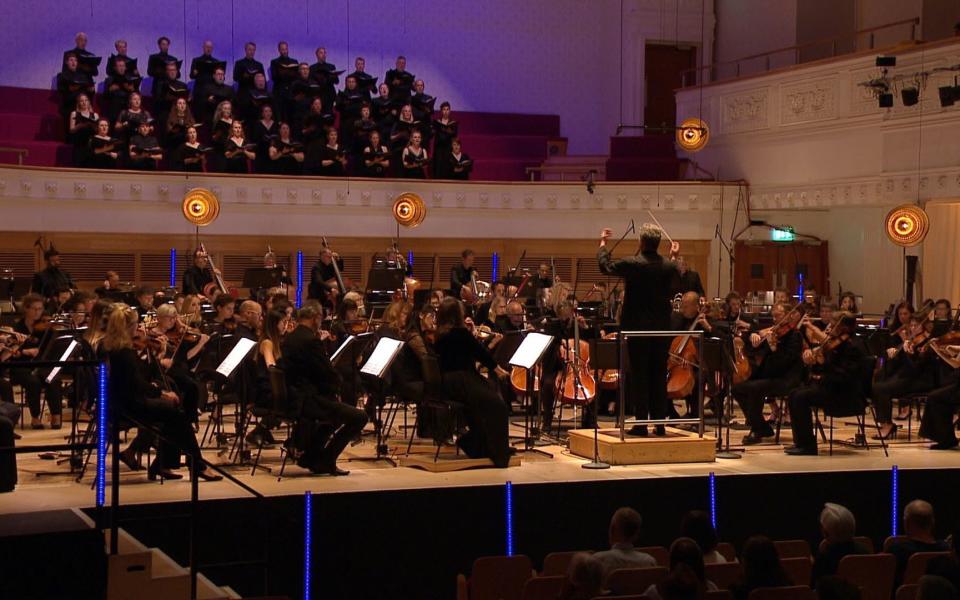Julian Lloyd Webber: BBC scrapping of choir has eroded public’s trust and licence fee obligations

The decision to scrap the BBC Singers choir calls the licence fee into question, Julian Lloyd Webber has said.
The BBC announced earlier this month that the choir, which has been in existence since 1924, will be scrapped and all members made redundant.
Lloyd Webber, the celebrated cellist, said that the “lamentable” decision was part of “the BBC’s long-term downgrading of classical music”.
Writing in Radio Times, he said: “What has happened to our nation’s beloved BBC - the organisation that has been responsible for some of the greatest classical music broadcasts in history?
“That BBC no longer exists. The dereliction of its core principles has happened stealthily, over many years and with a lack of transparency that has eroded trust both inside and outside the organisation.
“Quite rightly, profound questions are now being asked as to what, if anything, the BBC still stands for. Has it given up any pretence of public service broadcasting? And, if so, why does it continue to receive our licence fees?”
Lloyd Webber, who was awarded an OBE in 2021 for his services to music, said the BBC must rediscover its mission to inform, educate and entertain “before the simple pleasure of attending a classical music concert becomes a cherished, yet distant, memory.”
As part of the same round of cuts, musicians with the BBC Philharmonic, the BBC Symphony Orchestra and the BBC Concert Orchestra will lose their jobs.
The corporation is seeking to cut its salary bill for the three orchestras by 20 per cent and has invited voluntary redundancies. Permanent members of the orchestra will be replaced by freelance musicians.

The BBC described its strategy as “bold” and “ambitious”, with freelance musicians forming “agile ensembles that can work creatively”. Lloyd Webber said this “corporate-speak… descended to fresh nadirs of cynical jargon”.
Fears have been raised that the culling of the BBC choir will prompt a boycott of this year’s Proms by musicians and singers.
Critics of the decision include Sakari Oramo, chief conductor of the BBC Symphony Orchestra, who wrote on social media: “I am disgusted by the BBC announcements… the axing of BBC Singers is an action of blatant vandalism.”
A leaked letter to the BBC board from the co-directors of the BBC Singers also laid bare their fury towards BBC management.
Rob Johnston and Jonathan Manners condemned the “calamitous handling of the proposed closure of the BBC Singers” and claimed that “a culture of fear and paranoia has been created as seismic decisions on the corporation’s future are taken at speed without any proper analysis or meaningful consultation”.
BBC managers were guilty of “shameful neglect” of the corporation’s classical music offering, Johnston and Manners said.
Announcing the cuts, the BBC said its new strategy “prioritises quality, agility and impact”.
Charlotte Moore, the BBC’s chief content officer, said: “This is the first major review of classical music at the BBC in a generation. This new strategy is bold, ambitious, and good for the sector and for audiences who love classical music. That doesn’t mean that we haven’t had to make some difficult decisions, but equally they are the right ones for the future.
“Great classical music should be available and accessible to everyone, and we’re confident these measures will ensure more people will engage with music, have better access to it, and that we’ll be able to play a greater role in developing and nurturing the musicians and music lovers of tomorrow.”

 Yahoo News
Yahoo News 
